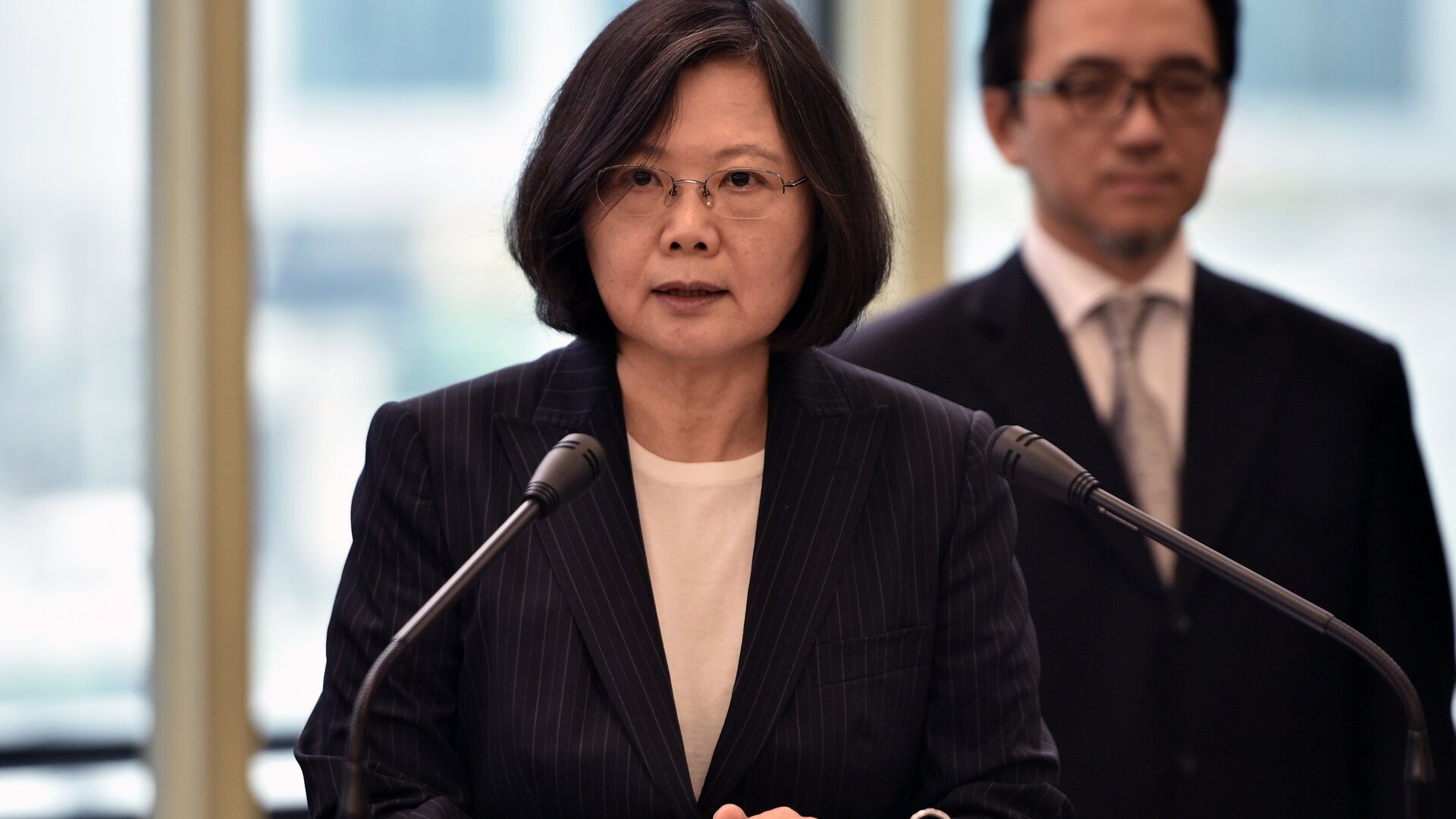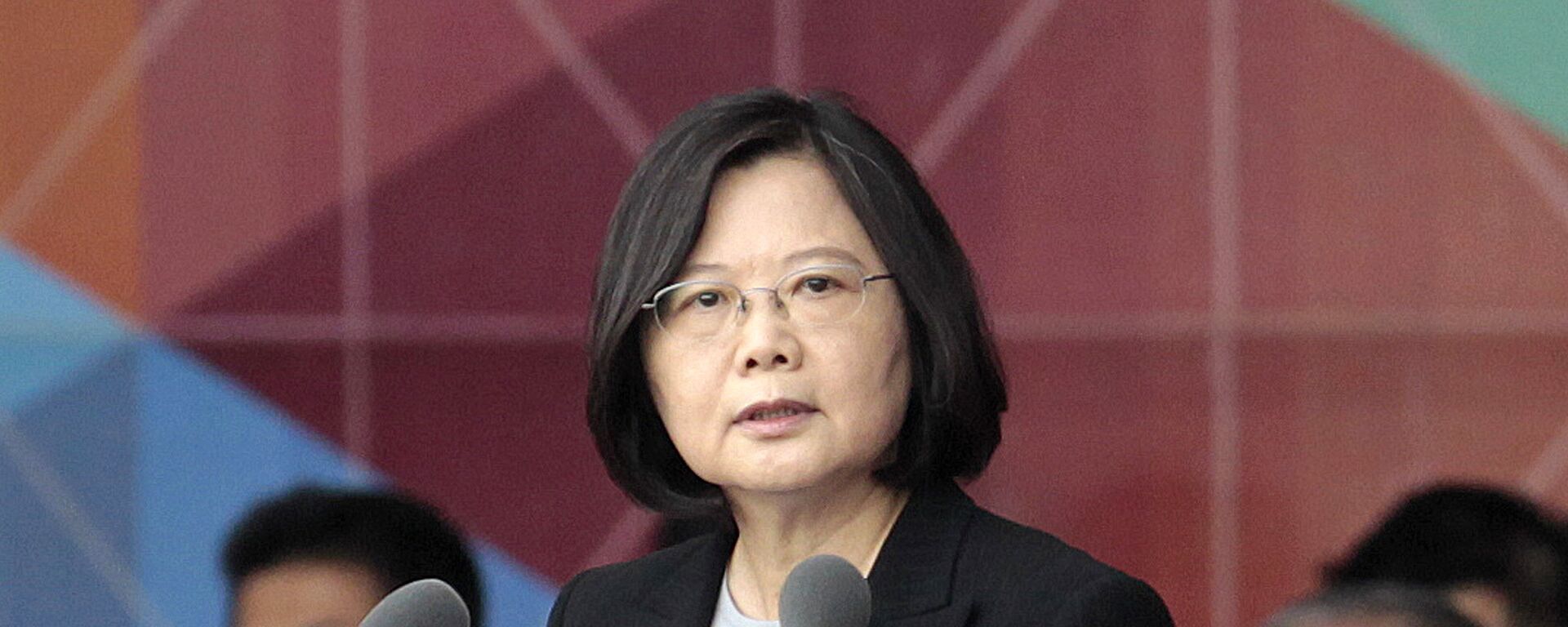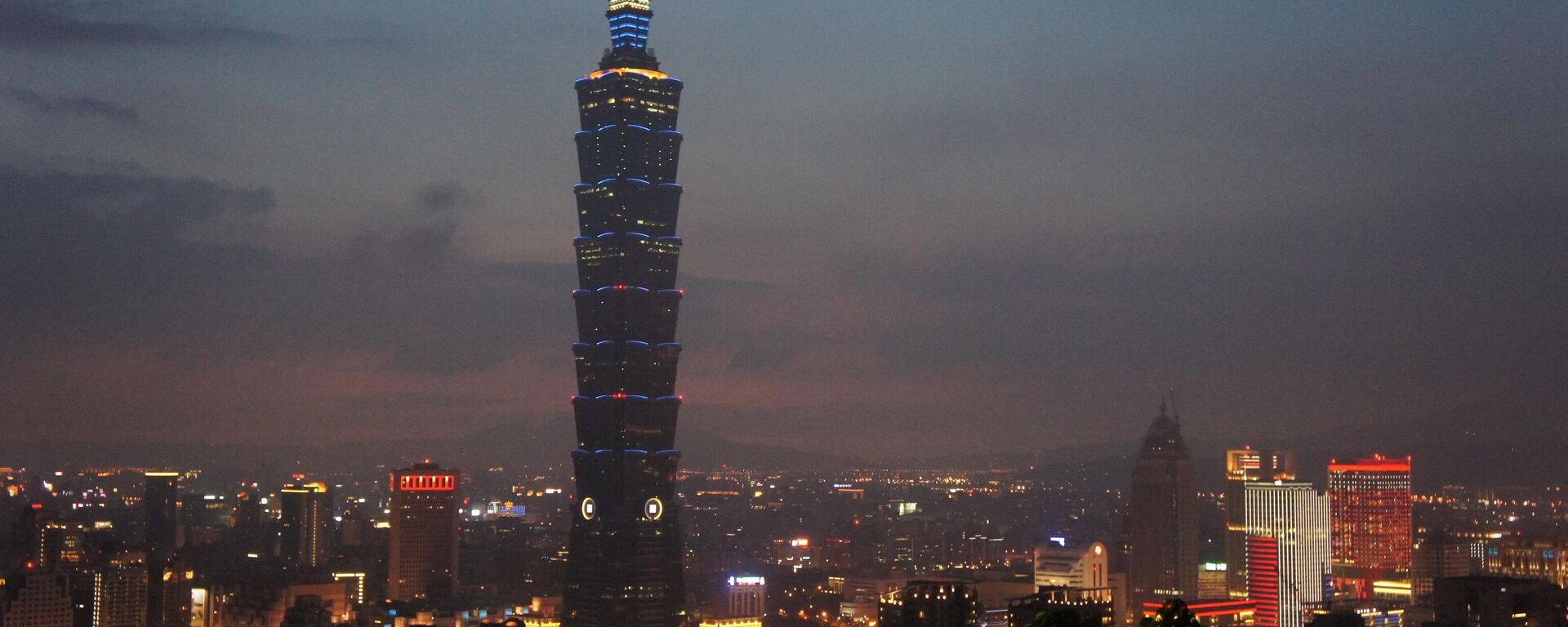Tsai's Visit to US Can't Curb China's Growing Political Influence in the World
13:22 GMT 30.03.2023 (Updated: 12:46 GMT 19.06.2023)

© AFP 2023 / SAM YEH
Subscribe
Taiwanese leader Tsai Ing-wen's "transit visit" to the US is consistent with Washington's policy of having close relations with the island while maintaining the appearance of non-official ties, Ross Feingold, a political risk analyst, told Sputnik, adding that Beijing could respond with military exercises and restrictions against Taipei.
On March 30, Tsai Ing-wen made the first unofficial stopover in New York City, the US, on her way to Central America. The Taiwanese leader has embarked on a 10-day diplomatic tour to Guatemala and Belize in the wake of Honduras' decision to cut ties with the island and establish diplomatic relations with the People's Republic of China under the "One China" principle. Honduras becomes Taipei's ninth diplomatic ally that it has lost to Beijing since Tsai Ing-wen first took office. Now only 13 countries recognize Taiwan.
"The main goals are just to maintain Taiwan's international visibility by visiting Guatemala and Belize, and having some high profile events in the United States," said Ross Feingold, who has over twenty years’ experience advising clients on political risk in China and Taiwan. "But as far as achieving goals, the things that are proceeding in US-Taiwan relations like weapons sales or trade negotiations, those things are going to go on regardless of whether or not President Tsai had transited the United States. So in some ways, this is again, it's more about being visible. It's not necessarily meant to cause anything substantive to occur during the meetings that she might have with US politicians."
Tsai's diplomatic charm offensive will be wrapped up with a second unofficial stopover – in Los Angeles – where she is due to meet US House Speaker Kevin McCarthy. White House National Security Council spokesman John Kirby insisted on March 29 that Tsai's transit through the US is private, unofficial, and consistent with the One China policy. However, Chinese Foreign Ministry Spokesperson Mao Ning rubbished Kirby's claim as a "lie" and warned Washington against official interactions between the US and Taiwan as well as any visits by Tsai to the US under whatever pretext. Beijing sees Taiwan as an inalienable part of the People's Republic of China.
"China could respond with similar measures like it took last year when Nancy Pelosi visited Taipei," political risk analyst said. "So that could be military exercises near Taiwan and it could be trade retaliation against certain products from Taiwan. As we saw with Honduras recently, it could also include persuading countries that have diplomatic relations with Taiwan to terminate those diplomatic relations. There are several countries that are definitely candidates for China to persuade in the near term to make that switch. I wouldn't say that there's a chance that it would backfire. The things that anger China with regard to US-Taiwan relations, again, things like weapons sales, closer military cooperation. Those things are going on anyway. And they would be going on regardless of Tsai Ing-wen’s visit to the United States."
While it's always possible that a small country, maybe in the Pacific, in the Caribbean, might terminate its relations with China and establish diplomatic relations with Taiwan, it's highly unlikely that any major international players will switch sides and embrace Taipei instead of Beijing, according to the political risk analyst. In this respect, Tsai's "transit visit" to the US is unlikely to change the existing status quo.
"It's a long term trend with China's economic growth and political influence around the world," Feingold said. "The countries that previously had relations with Taiwan will end those relations and enter into diplomatic relations with China. But we should keep in mind that Taiwan has very strong, unofficial relations with the countries that are most relevant to Taiwan, whether that's trade relations or security relations. They don't call them diplomatic relations. But in reality, those relations are almost identical, as if they did have diplomatic relations, whether that's with the United States or Japan, Australia, increasingly, several countries in Western Europe as well. So having diplomatic relations has important value as well for Taiwan, but ultimately its most important relationships are with the United States and certain other Western countries and Japan. And it hasn't had diplomatic relations with those countries for many decades. Reversing this, I don't think that's really an issue because it's not realistic that countries are going to suddenly end their diplomatic relations with China and establish diplomatic relations with Taiwan. It's always been China's policy not to agree that countries could have diplomatic relations with both China and Taiwan. So it's one way or the other. And I don't see many countries making that choice."



